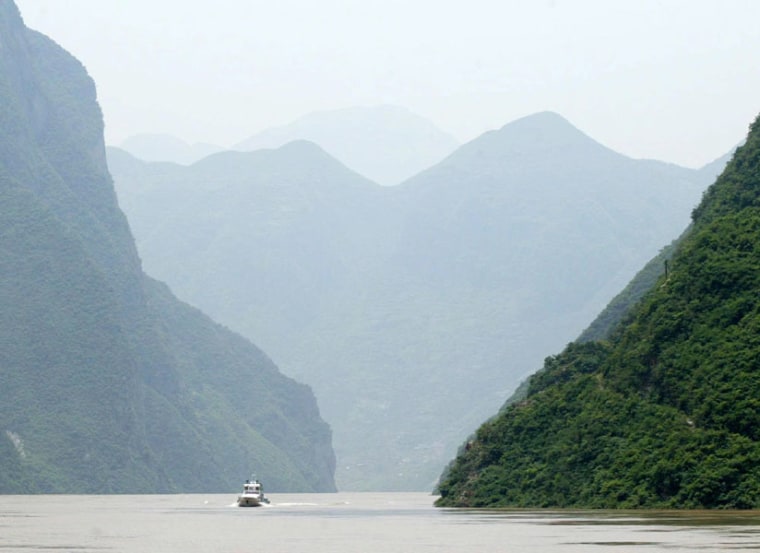Less water flows down China's two biggest rivers now than 40 years ago because global warming is drying up the wetlands that feed them, a state news agency reported Monday, citing Chinese scientists.
Xinhua News Agency said scientists of the Chinese Academy of Sciences studied changes at the wetlands of the Qinghai-Tibet Plateau in western China — the source of the Yangtze and Yellow rivers.
Using aerial photos and satellite images, they found the wetlands on the plateau have shrunk more than 10 percent over the past four decades. The wetlands at the origin of the Yangtze have suffered the most, contracting by 29 percent.
"The wetlands play a key role in containing water and adjusting the water volume of the rivers," researcher Wang Xugen was quoted as saying. "The shrinking of the wetland on the plateau is closely connected with global warming."
The drop in water flow comes despite an increase in the amount of rain in the region.
"The increased rainfall didn't lead to more water flow in the rivers because the evaporation was so fast as a result of global warming," Li Shijie, a researcher with the Nanjing Institute of Geography and Limnology, was quoted as saying. The institute is connected to the Chinese Academy of Sciences.
The report did not comment on the impact of the reduced water levels in the rivers.
China — by some reports now the world's leading emitter of carbon dioxide, the greenhouse gas tied to global warming — has said it is trying to cut its emissions.
Officials say the country's efforts include energy conservation measures, increasing forest coverage and family planning policies that have slowed population growth.
The Netherlands Environmental Assessment Agency said in a report last month that China overtook the United States in carbon dioxide emissions by about 7.5 percent in 2006. While China was 2 percent below the U.S. in carbon dioxide emissions in 2005, voracious coal consumption and increased cement production caused the numbers to rise rapidly, the agency said.
